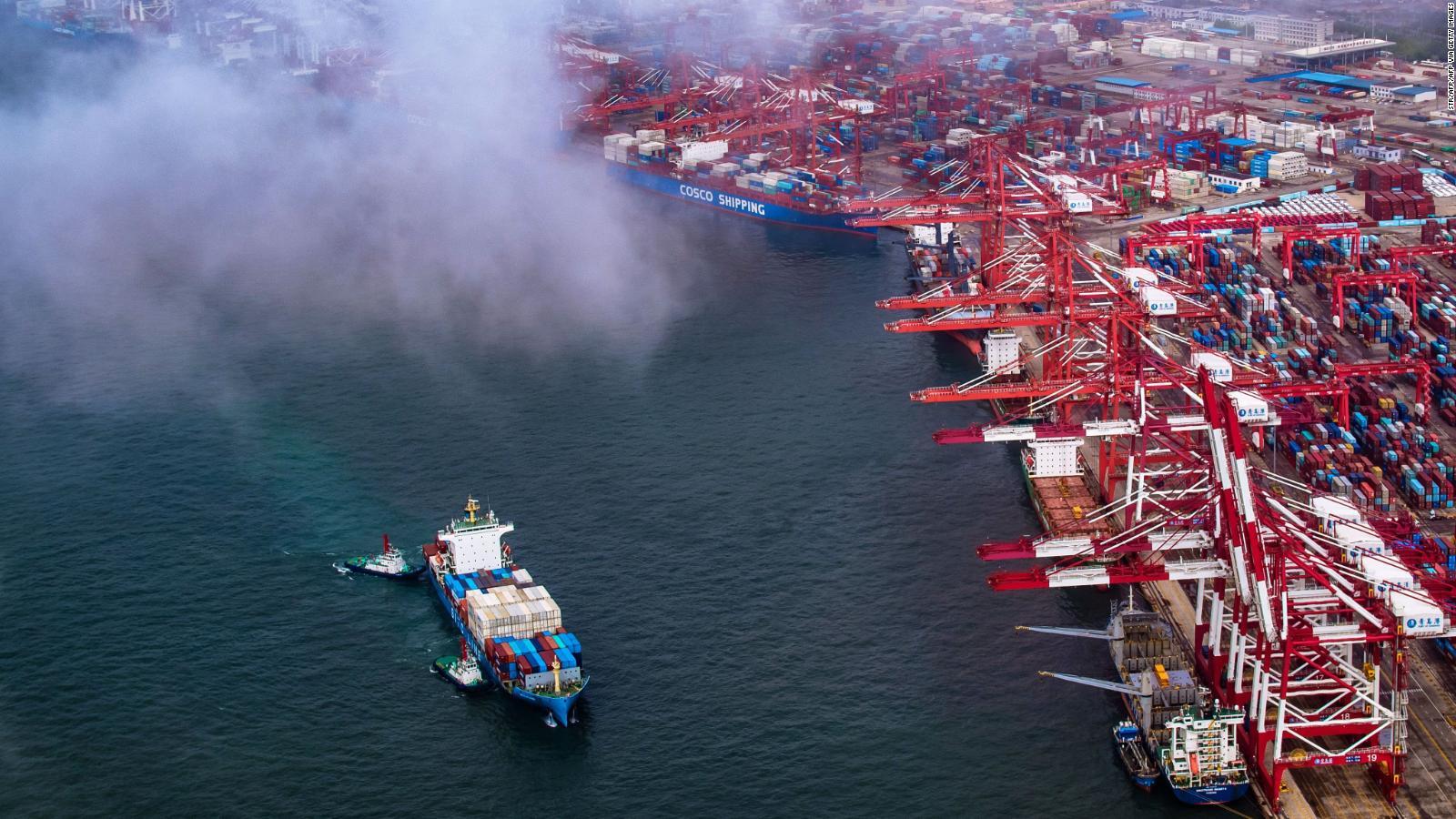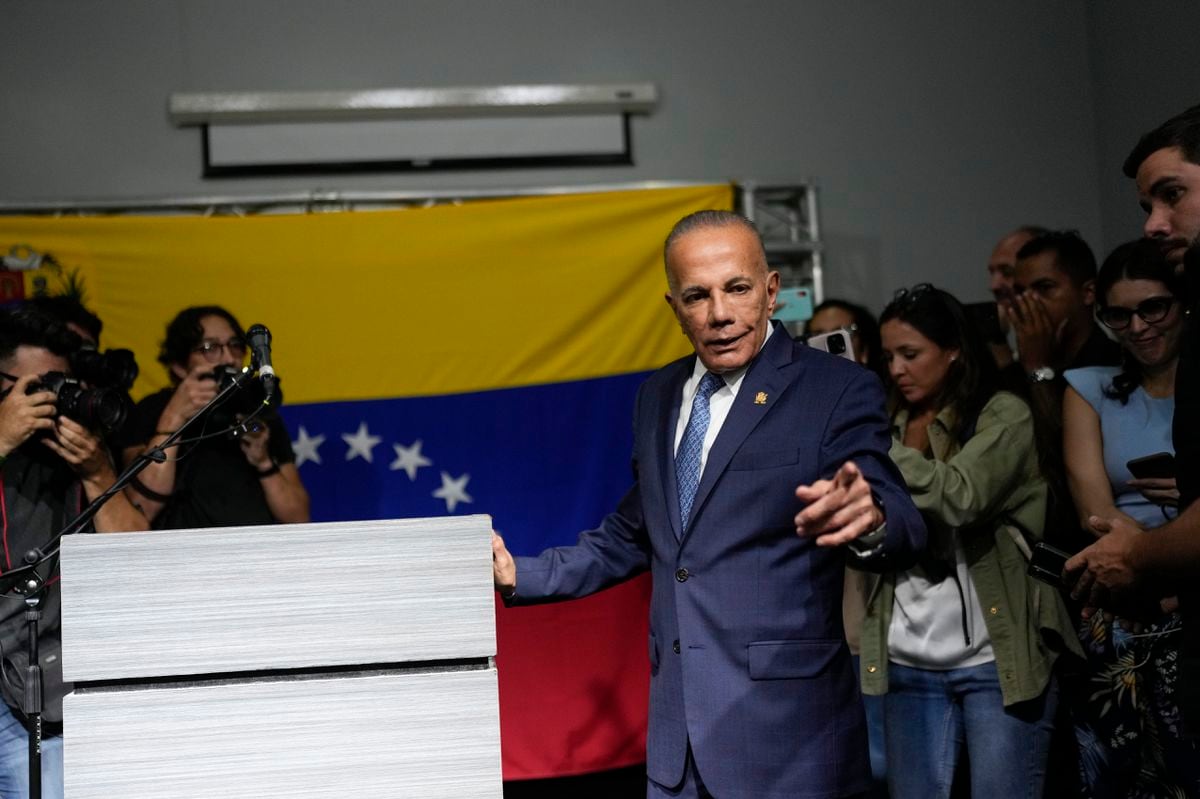In the US there are $2 trillion in savings 1:21
(CNN) --
The worst of the pandemic may be over, but an approaching economic "hurricane" compounded by Russia's war on Ukraine means a return to normalcy is nowhere in sight any time soon. .
"The hurricane is out there, coming our way," JPMorgan Chase Chief Executive Jamie Dimon said Wednesday, adding a warning to his dire economic forecast.
"We just don't know if it's a minor one or Superstorm Sandy. They better get ready."
OPINION |
It's time to prepare for a recession
For the developed world, the prospect of a severe recession is deeply worrying.
In the poorest countries, the growing fear – and the danger already present – is that what the World Food Program calls a “hunger catastrophe” is looming.
When economies shrink and poverty rates rise, political systems falter.
And we are already seeing it in some countries.
As we emerge from the clutches of the pandemic, we are beginning to see how the coronavirus has reshaped the world.
That scenario was worrying enough before Russia struck a blow that set the world back.
China seeks to revive its economy after the outbreak of covid-19 0:49
The pandemic has affected supply chains, as companies reduced or stopped production.
Transportation and logistics took a hit, pushing prices higher still.
Changing ideas about work drove millions of people out of their jobs, many of whom refused to take jobs they might have held before the crisis, and severely disrupted labor markets.
Governments pumped in cash to keep people afloat, fueling inflation that is now forcing central banks to raise interest rates and take other painful steps.
Dimon was talking about the US economy, referring to the impact of the Federal Reserve's efforts to quell rising inflation.
But the economic repercussions of the two crises – the pandemic and the war in Ukraine – are sending shock waves across the planet.
Although some in the United States are quick to blame the current administration for the country's woes, the fact is that almost all of the symptoms that afflict the US economy also affect much of the world.
Gasoline prices are skyrocketing around the world, as are food prices.
The shortage of personnel has become the nightmare of employers.
"Help Wanted" signs have been posted in Amsterdam, Bruges and many other cities, and some businesses have cut their hours due to lack of workers.
The lack of staff is also causing endless queues at airports across Europe, just as it is contributing to flight cancellations in the United States.
Gasoline prices were already rising before Russian President Vladimir Putin launched the invasion of Ukraine.
This is because during the pandemic, when gasoline fell below $2 a gallon in the United States, producers and refiners cut production by almost 40%.
Some refineries even closed for good.
When the economy began to recover, they were slow to return to previous levels.
Then Russia, one of the main oil producers, invaded Ukraine, and oil prices soared even higher.
Production in the United States has increased, but not enough.
Food prices and hunger were already at crisis levels around the world before the Ukraine war, and current fertilizer shortages – also exacerbated by the Russian war – compound production problems.
A study conducted by Oxfam in July 2021 revealed that the number of people living in famine conditions has increased sixfold compared to 2020, with more people dying from malnutrition than from covid-19.
The situation has deteriorated since Russian forces turned some of Ukraine's farmland into war zones, then blockaded key Ukrainian ports like Odessa and stole Ukrainian grain, depriving world markets of an important food source. basics.
IMF warns of worst economic crisis since World War II 1:07
The political impact is already startling.
In Colombia, where the pandemic has decimated the middle class and plunged millions into poverty, the first round of presidential elections last week produced a shocking result.
After decades of electing center or center-right presidents, Colombian voters chose for a second round – on June 19 – a former leftist guerrilla, Senator Gustavo Petro, who promises profound change, and Rodolfo Hernández, a businessman and former mayor, 77, largely unknown, who some describe as a Colombian version of former US President Donald Trump, with misogynistic views and a penchant for controversy.
With most Colombians food insecure and 40% living in poverty, voters chose two anti-establishment figures, which could be the reaction of a population traumatized by economic headwinds and worsening inequality.
When people experience extreme financial pain, they often demand change.
And it seems that change is coming.
Colombians are on edge.
Similar dramas are taking place around the world.
Every country is different, and every situation includes multiple factors.
But what is undeniable is that the impact of the coronavirus pandemic is lingering in far more significant ways than our tired debates about whether or not to wear masks or gather at home with friends.
In Sri Lanka, for example, poor decisions made before the pandemic left the country deep in debt.
Then the pandemic cut the lifeline represented by tourism.
The coup de grâce came with the war in Russia, which pushed prices up even more.
The country ran out of money, stopped paying its debts and now cannot afford to buy food or medicine.
It is a crisis like no other that the country has experienced.
Amid massive protests, the prime minister has resigned, his house has been burned down and calls continue for the president to resign.
Widespread economic turmoil is often a factor in political instability.
Take the so-called Arab Spring, which rocked the Middle East a decade ago, toppling regimes and sparking civil wars.
Rising food prices and unemployment were some of the main triggers.
Rising prices could again fuel political instability in the Middle East.
The pandemic has dealt a huge blow to the world, beyond the millions of lives it has already claimed.
And so, just as the world was trying to ease supply chain bottlenecks, stabilize labor markets and restore oil production to pre-pandemic levels, Putin's war reversed much of the gains.
Of all emergencies, the most urgent is the "seismic crisis of hunger" which, according to the WFP, is already "engulfing the world" and could bring 48.9 million people to the brink of famine.
This figure is much higher than the nearly 6.3 million people who have been confirmed to have died of covid-19 so far.
Covid-19 hits China's economy stronger than expected 1:16
To avoid such a catastrophe, the world powers should study how to break the Russian blockade of the Ukrainian ports.
Putin is attempting to weaponize hunger, cynically suggesting that he would help alleviate world hunger if the West lifts sanctions against Russia.
It is worth remembering that the sanctions were triggered by Russian aggression.
Europe should also work to boost Ukrainian exports by rail, even if that doesn't make up for sea routes.
Meanwhile, lower income countries need urgent help.
Since the war, grain prices have skyrocketed, and financial support for purchases is an obvious response.
The World Food Program's efforts to provide food for the poor require greater international support.
As we have learned in recent years, a country's problems do not remain within its borders.
Humanitarian reasons alone justify aid to avert famine, but self-interest also comes into play.
Poverty and hunger drive large migrations and produce political instability.
And that, given the proximity of an economic hurricane, could make an already difficult situation even more dangerous.
Covid-19EconomyWar in Ukraine


/cloudfront-eu-central-1.images.arcpublishing.com/prisa/AYBDQARVBB2WDG6IFPXHYFIMBM.jpg)

/cloudfront-eu-central-1.images.arcpublishing.com/prisa/VD7ONLCZSZBRRLBARPIUKVHOXI.jpg)




